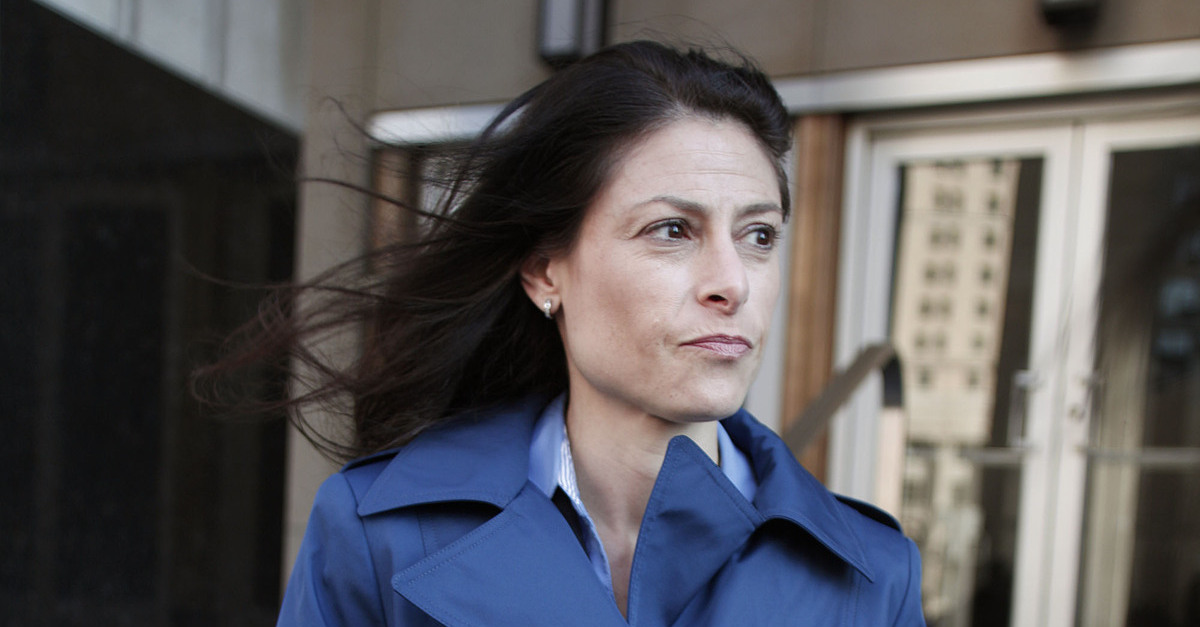
Michigan Attorney General Dana Nessel raised eyebrows on Saturday morning when it was reported that she was “exploring” whether to launch criminal inquiries into state GOP leaders who may be working with President Donald Trump to block Michigan’s certification of ballots cast in the 2020 presidential election.
Legal experts, however, appear to be split on the potential upshot of any such criminal inquiry at this stage.
According to the Washington Post, two anonymous sources said to be “familiar with the review” told the outlet that Nessel was specifically looking into whether those Republican Party elected officials “risk committing crimes” by successfully helping the 45th president in his efforts to deny the vote certification.
The report clarifies some of the preliminary steps being taken:
The attorney general is conferring with election law experts on whether officials may have violated any state laws prohibiting them from engaging in bribery, perjury and conspiracy, according to people familiar with the deliberations who spoke on the condition of anonymity to discuss a sensitive matter.
On Friday evening, Michigan Senate Majority Leader Mike Shirkey and Michigan House Speaker Lee Chatfield, along with State Sen. Tom Barrett and State Rep. Jason Wentworth.
That meeting, announced to much fanfare and attention, was widely criticized before it occurred but ultimately appeared to be a case of smoke without fire. A statement issued by the legislators after the fact appeared to dash hopes of overturning the results in their state.
“We have not yet been made aware of any information that would change the outcome of the election in Michigan and as legislative leaders, we will follow the law and follow the normal process regarding Michigan’s electors, just as we have said throughout this election,” the GOP leaders’ press release noted.
“Michigan’s certification process should be a deliberate process free from threats and intimidation. Allegations of fraudulent behavior should be taken seriously, thoroughly investigated, and if proven, prosecuted to the full extent of the law. And the candidates who win the most votes win elections and Michigan’s electoral vote,” the lawmakers continued—leaving the possibility open but leaning toward no chance for the fatigued and dispirited Trump campaign.
Still, nerves in the Wolverine State have been tightly constricted due to the Trump campaign’s steady stream of election-related litigation. Tensions flared significantly last week when campaign attorneys issued premature claims of victory after two Detroit-area GOP officials attempted to rescind their certification votes for Wayne County after being pressured by the president himself during a controversial series of phone calls.
Fears have since run rife that the president, along with various state-level GOP officials, may be engaged in an untoward and potentially unlawful conspiracy to disenfranchise Michigan voters. Nessel’s reported inquiry is, perhaps, the logical progeny of taking such claims seriously.
Legal experts surveyed by Law&Crime were of two minds here.
“I see no basis, certainly at this point, for a criminal inquiry,” Tulane Law Professor and election litigation expert Ross Garber told Law&Crime in an email. “In fact, the legislators released a statement after their meeting reaffirming that the will of the voters will control the Michigan electoral votes.”
UCLA Law Professor Eugene Volokh was similarly unimpressed.
“Well, bribery is a crime, so if someone was bribed, that warrants a criminal prosecution – but is there any actual evidence?” he said. “Perjury is a crime, so if someone perjured himself, that warrants a criminal prosecution – but is there any actual evidence? Rescinding one’s vote, of course, isn’t a crime.”
Volokh went on to note that judging the likelihood of criminal acts or charges here would necessitate knowing “some actual facts” but suggested that, as of now, Nessel’s office was likely just “saber-rattling.”
“While the president’s actions here seem to be wildly inappropriate, I don’t see a criminal statute that applies neatly to this scenario – perhaps because the conduct is so audacious and unprecedented that there hasn’t been prior occasion to codify it,” CNN legal analyst Elie Honig added — suggesting that while the behavior certainly looks criminal to many, the law itself is simply not equipped to deal such actions.
Others advised caution for any state officials currently conferring with Trump on what would amount to decidedly extreme measures aimed at undoing voters’ decisions in Michigan or elsewhere.
“State officials need to be wary of coming anywhere near the criminal line of bribery when talking with President Trump about the election certification process,” national security attorney Bradley P. Moss said. “The president cannot pardon them for state crimes.”
To wit:
Imagine being the nebbish, who, takes a flight to DC in the middle of a pandemic to meet with a soon-to-be former president who wants you to help him steal an election he lost by millions of votes. https://t.co/UcOJvUQ09v
— Joyce Alene (@JoyceWhiteVance) November 20, 2020
While the potential for any such charges is speculative at this point, prosecutors and attorneys general do have wide latitude to fashion creative interpretations of statutes into the stuff of grand jury panels and even eventual indictments if they are committed enough to pursuing any given cause. Or, as the cliche goes, it’s more or less possible to indict a ham sandwich.
[image via Bill Pugliano/Getty Images]